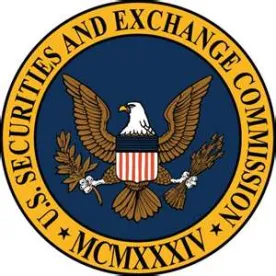On February 24, 2015, the Securities and Exchange Commission (SEC) announced that it had settled its Foreign Corrupt Practices Act (FCPA) investigation of payments made by two subsidiaries of The Goodyear Tire & Rubber Company (“Goodyear”). According to the Cease & Desist Order issued by the SEC (the “Order”), Goodyear agreed to disgorge $14,122,525 in profits, pay prejudgment interest of $2,105,540, and report its FCPA remediation and compliance efforts to the SEC for three years, but did not admit or deny wrongdoing in connection with the allegations. Order at 6-7.
The investigation involved allegations that between 2007 and 2011 Goodyear’s subsidiaries in Kenya and Angola paid more than $3.2 million in bribes to “employees of government-owned entities and private companies to obtain tire sales.” Id. at 2. The SEC also alleged that employees of the Kenyan and Angolan subsidiaries made payments to local government officials, but the purposes of the payments¾which totaled only $14,457 and $64,713, respectively¾were not identified in the Order. Id. at 3-4. During that period, the payments were falsely recorded as legitimate business expenses by the two subsidiaries and consolidated into Goodyear’s books and records. Id. at 2. The SEC alleged that Goodyear had violated the books and records and internal control provisions of the FCPA (15 U.S.C. §§ 78m(b)(2)(A) and (B)) by failing to maintain accurate books and records, and failing to “devise and maintain sufficient accounting controls to prevent and detect” the improper payments. See id. at 4.
Goodyear acquired a minority interest in the Kenyan subsidiary in 2002 and a majority interest by 2006, but the day-to-day operations of the subsidiary continued to be managed by its founders. Id. at 3. The SEC alleged that the practice of making improper payments was in place prior the acquisition and that Goodyear failed to detect the practice because it did not conduct adequate due diligence when it acquired the subsidiary, and “failed to implement adequate FCPA compliance training and controls after the acquisition.” Id. at 3. The SEC also alleged that Goodyear failed to implement adequate FCPA compliance training and controls when it established the Angolan subsidiary in 2007. Id. at 3-4.
According to Goodyear’s 2014 10-K, in June 2011 an anonymous source reported through Goodyear’s confidential ethics hotline that its Kenyan subsidiary was making improper payments; similar allegations were made by an employee of the Angolan subsidiary in July 2011. 2014 10-K at 20. After receiving these reports, the Order notes that Goodyear halted the improper payments, conducted an internal investigation, reported the matter to the SEC, and provided “significant cooperation” with the SEC’s investigation, producing documents from its internal investigation and responding to the SEC’s inquiries. Order at 5. In addition, the Order notes that Goodyear has undertaken substantial remedial efforts, including divesting its ownership interests in the two foreign subsidiaries, taking disciplinary action against executives in its Europe, Middle East and Africa region for failing to implement adequate FCPA compliance training and controls, and improving its compliance program both in sub-Saharan Africa and globally. Id. The SEC said that it did not impose a civil penalty on Goodyear as a result of its cooperation and remediation efforts. Id. at 7.
Goodyear also self-reported to the Department of Justice (DOJ); in January 2015, the DOJ notified Goodyear that it had closed its parallel inquiry and did not plan to pursue criminal charges. 2014 10-K at 20.
Goodyear’s settlement with the SEC once against underscores the importance of conducting thorough due diligence prior to acquiring an overseas entity, as well as ensuring that FCPA training and compliance programs are put in place promptly once the acquisition is completed. These compliance measures are especially important where former owners or legacy employees retain day-to-day management authority for the acquired entity. Goodyear also benefited from its prompt self-reporting and cooperation with the SEC and the DOJ, avoiding both criminal and civil penalties. Once a company discovers that it conducted inadequate due diligence prior to an acquisition, it must be especially aggressive in implementing remedial measures when wrongdoing is uncovered, and should give careful consideration to self-reporting the wrongdoing to governmental authorities.




 />i
/>i

